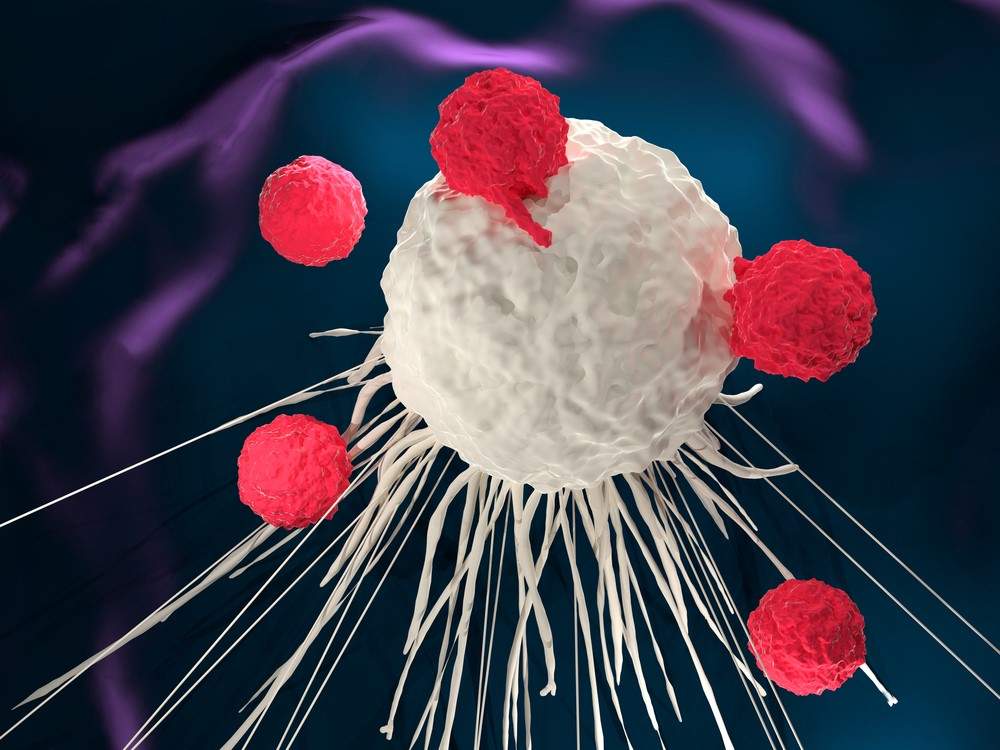

Researchers at the University of Pennsylvania’s Abramson Cancer Centre have reported that the accidental genetic engineering of a single leukemic cell during the early manufacturing of CAR-T therapy tisagenlecleucel, which would later become Novartis’s Kymriah, for a phase I study caused the relapse and eventual death of one patient participating in the clinical trial.
The relapse of the deceased patient, a 20-year-old man with acute lymphoblastic lymphoma (ALL), was traced by the researchers to the introduction of a leukemic B cell during production of the CAR-T therapy.

Discover B2B Marketing That Performs
Combine business intelligence and editorial excellence to reach engaged professionals across 36 leading media platforms.
Therapy with Kymriah involves genetically engineering of T cells to attack leukaemia cells that express the protein CD19 on the surface. However, the patient’s death suggests that modifying the cancer cell so it expressed both CD19 and anti-CD19 receptors enabled the leukemic cell to escape detection by the immune system and therefore to multiply.
Lead author of the study and assistant professor of haematology-oncology Marco Ruella said: “In this case, we found that 100 percent of relapsed leukemic cells carried the CAR that we use to genetically modify T cells.
“This is the first time in hundreds of patients treated at Penn and other institutions that we’ve observed this mechanism of relapse, and it provides important evidence that steps in the delicate and complex process of engineering personalized cells can play a role in patient outcomes.”
The University of Pennsylvania researchers concluded that these findings demonstrate the serious obstacles in the manufacturing of CAR-T therapies, as well as showing the possibility and a method that cancer cells could become resistant to this type of personalised medicine.

US Tariffs are shifting - will you react or anticipate?
Don’t let policy changes catch you off guard. Stay proactive with real-time data and expert analysis.
By GlobalDataThe researchers wrote in their report published in Nature Medicine: “These findings illustrate the need for improved manufacturing technologies that can purge residual contaminating tumour cells from engineered T Cells.”
Senior author, associate professor of pathology and laboratory medicine and a member of the Center for Cellular Immunotherapies J Joseph Melenhorst agreed, saying: “This is a single case, but is still incredibly important and can help us refine the intricate processes required for manufacturing CAR T cell therapy to ensure the best chance of long-term remissions.”
Novartis emphasised in a statement that the manufacturing methods used to commercially manufacture Kymriah were different and improved from those used by the University of Pennsylvania earlier in the clinical trial process.
The company said: “We are committed to the highest quality standards. We have processes in place to eliminate B-cells, including leukemic cells, from the apheresed product and have steps throughout the manufacturing process to further limit the risk of B-cell presence. Novartis also has a long-term registry to monitor Kymriah patients for 15 years following treatment.
“Novartis is continually making improvements to our Kymriah manufacturing process to reduce variability and safely deliver this transformational, personalized treatment to patients in need around the world.”
The university also noted the difference between Novartis’ and its manufacturing process in their statement.
The Swiss biopharma has, however, faced other issues with the manufacturing of Kymriah. Novartis has tried to mitigate these and provide timely treatment to patients with both ALL and diffuse large B cell lymphoma globally.
Novartis has set its sights on marketing Kymriah in China by signing a manufacturing agreement with Cellular Biomedicines; the Chinese Government requires drugs sold to patients in China to be manufactured in the country.
Cell & Gene Therapy Coverage on Pharmaceutical Technology supported by Cytiva.
Editorial content is independently produced and follows the highest standards of journalistic integrity. Topic sponsors are not involved in the creation of editorial content.


